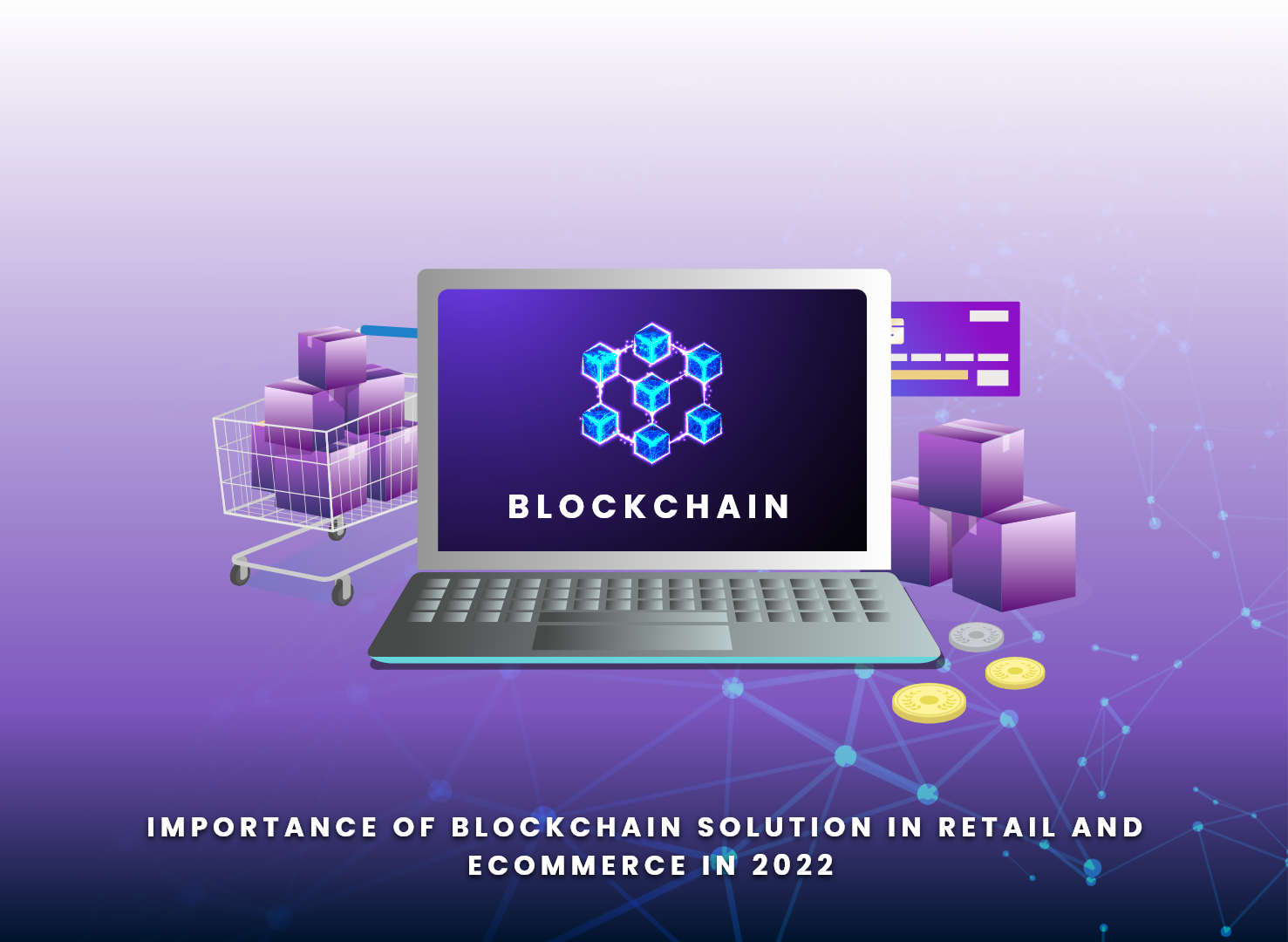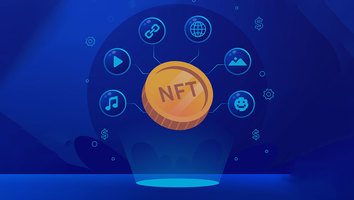The global economy is increasingly relying on blockchain technology, and the e-commerce and retail industry is taking note. This paradigm shift has been occurring in recent years, with an increasing number of enterprises understanding the technology's potential.
Blockchain solutions are quietly ticking away in the background, playing an important role in the future of retail and e-commerce platforms.
Read along to know more about the importance of blockchain solutions in the retail and e-commerce industry in 2022.
- Improved Security & Safety
According to PriceWaterhouse Coopers' annual Global Economic Crime and Fraud Survey 2020, 47% of businesses experienced fraud in the previous 24 months, resulting in a loss of $42 billion.
Ecommerce retailers are concerned about data leaks and fraudulent transactions. The highest level of security for customer databases and CRM systems is provided by blockchain solutions, which allows for trusted identities to be confirmed by multiple trusted parties. Blockchain is a new-age technology that enables digital transformation and produces an incorruptible digital ledger for financial transactions (such as cryptocurrency) as well as extremely secure data security systems.
Moreover, a cryptographic signature can be appended to the file on the blockchain to increase security. If someone attempted to tamper with the company's data, the company would be notified.
- Maintaining The Quality of Product
The apparent ramifications of blockchain for tracking where items come from, whether they're genuine, and in what condition they're in are obvious. Temperature data from perishable commodities, for example, can be recorded on a secure digital ledger using Internet of Things-enabled sensors.
If a product is proven to be defective, a blockchain history allows a company to trace the product back through the supply chain, identifying potentially tainted suppliers, manufacturers, and batches. Retailers can simply recall products and correct supply chain concerns thanks to blockchain development services.
- Saving Costs
One of the most significant benefits of blockchain technology is that it enables retailers to merge services such as payment processing, inventory management, product descriptions, and so on, reducing the cost of purchasing and maintaining separate systems.
There's no need to go via banking systems because cryptocurrencies like Bitcoin may be sent directly peer-to-peer. Banks' fees for providing or getting funds, as well as credit card issuers' fees for processing payments, are reduced as a result.
- Handling Consumer Data
Organizations must handle consumer data appropriately as they continue to collect more data than ever before. Decentralized identity (DID) is enabled by blockchain technology, which allows individuals to store their personal data outside of organizational databases. Data and any ties to it can be kept on the blockchain using DID, providing for user identity and data verification as needed.
- Easy & Fast Transactions
There are no delays in payment processing or pending transactions because blockchain transactions are almost immediate and do not go via traditional banks. Customers will benefit from speedier order fulfillment because purchases can be made quickly. Hire the best blockchain development services to bring your business to the next level.
- Back-Office Administration Is Automated
The adoption of 'smart contracts,' for example, allows for quick payment of freelancing contractors after a project is completed, which helps to expedite administrative processes in retailers' back offices. Furthermore, data-intensive administrative chores such as payroll administration can be digitized and tracked in real-time, allowing employees to focus on more creative and value-added work rather than mundane tasks.
- Enhancing Customer Loyalty Programmes
Blockchain solutions can assist in a variety of ways to strengthen the companies' loyalty programs. The acquisition of client data, which poses security problems, is a key driver of loyalty programs. Smart contracts, which are put onto a blockchain and automatically executed when certain circumstances are met, can help protect client data by trading digital tokens for rewards rather than data. Smart contracts enable to improve efficiency and security, save costs by automating operations, and eliminate the need for centralized redemption management.
- Simplifying Supply Chain Management
In the e-commerce supply chain, blockchain development services allow firms to eliminate the paper and physical labor linked with the shipment. Bills of lading for freight can be published on the blockchain at each stage in the supply chain, decreasing administrative time and costs while also making it easier to verify product details as well as pallet weight and track shipments.
The validity and quality of inventory for products with expiration dates or certificates of authenticity can also be secured using blockchain, assuring consumers that they are getting exactly what they paid for.
- Enhancing Business Processes
Blockchain technologies are able to store more than just transactional data. They can store smart contracts (also known as smart properties and chain code), which can automate processes like automatic payments and inventory management based on predefined rules and if-then expressions.
Blockchain can also store digital documents like customer receipts and warranty information, making it easier to verify ownership and warranty validity while lowering the number of paper records.
- Tracking Inventory
In the retail and e-commerce industry, effective inventory management is crucial. With the help of blockchain technology, the companies can manage their inventories better, which would ultimately lead to reduced inventory costs, improved order fulfillment and customer satisfaction, improved forecasting and profit margins, and so on.
Giving assets like inventory units, orders, and bills of lading individual blockchain identifiers – as well as the supply chain participants that interact with those assets – provides immutable visibility into every stage of the supply chain.
- Access To Global Consumers
Consumers from around the world will have more access. Customers in developing countries are not always able to use a safe banking system. With blockchain and cryptocurrencies, they can bypass the banking middlemen, giving them access to a wider selection of online stores.
Conclusion
There is no denying the fact that the future retail and e-commerce ecosystems will increasingly rely on blockchain technology.
Therefore, if you also want to implement blockchain solutions to your ecommerce or retail business, then contact W3Villa technologies today! We are one of the leading blockchain development companies that can drastically transform your conventional business to bring out positive outcomes.



